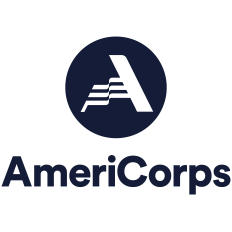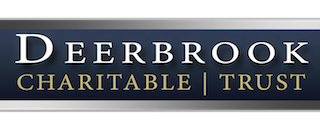December 19, 2013
Reading Partners pairs below-grade-level readers in D.C. with tutors twice a week
And then they visit a desert, or they go to a land where two armor-clad bears fight each other, or they become the sidekick of a kid who has funny misadventures. And for 45 minutes, they’re not children who have fallen behind in reading. They’re travelers off on another great adventure.
The students are a part of a national nonprofit program, Reading Partners, which pairs children, who are reading six months to 21 / 2 years below grade level, with a tutor twice a week. In Washington, the program serves 600 students in 11 school-based reading centers.
Marissa Gaston, 9, who started with Reading Partners at Seaton Elementary in September, said the extra help will someday make her a better firefighter.
“If there’s an emergency and there’s a note on the door, you can read it and know that that’s the house,” said Marissa, a fourth-grader, who read a book about life in the desert on Thursday.
The program has more than 600 volunteers, and each volunteer works with the same student every week. Marissa’s tutor, Chadawn Wilkins, 20, a third-year nursing major at Howard University, said they’ve developed a sister-like bond.
“We joke, we laugh, but at the same time, we still do what we have to do,” Wilkins said. “We learn what we have to learn.”
Lisa Lazarus, Mid-Atlantic executive director for Reading Partners, said program uses a research-based curriculum that was revamped this school year to align with common core state standards. For emerging readers, there’s a clapping game to help students find syllables. A more advanced reader will be asked to identify the main topic of a book or even to make inferences about the author’s message.
Lazarus said Reading Partners recruits site coordinators from AmeriCorps, a federal community service program, and is funded largely by grants, school fees and donations. It costs about $1,000 a year in private philanthropy to support a student, she said.
The Washington Post Charities grant will support personnel costs, including training support for volunteers and program materials, Lazarus said.
Walter Perdomo, a third-grader at Seaton, was reading a fantasy-adventure book in which bears played leading roles. “It’s awesome,” Walter said after a 2 p.m. tutoring session. “And sometimes I feel normal. I like so many books.”
He added, “Sometimes your imagination can take you in a book.”
Cathy Massey, a lawyer and Walter’s tutor, said Reading Partners is a program that makes a volunteer “feel like you’re actually helping.”
Sebastian Jakubowski, 28, who works in real estate and started volunteering after his fiancee introduced him to the program, expressed similar sentiments as he talked about a third grader he tutors.
“It’s good for the students. It’s good for everybody,” he said. “Ideally, I want him to be a more confident reader and maybe set the bar a little higher for himself.”
According to Reading Partners, 87 percent of Washington fourth-graders from low-income families cannot read at grade level. The program also says that children who cannot read proficiently by the fourth grade are four times as likely not to graduate on time.
Cynthia Robinson, an assistant principal at Seaton Elementary who focuses on literacy, said 40 students at the school are enrolled in the program. She said she can already see a difference.
“You have high-quality materials,” Robinson said, and “young and old volunteers who’ve got a positive, warm, friendly demeanor that keeps kids engaged. . . . We’re not only targeting the academics, we’re also getting them to feel better about learning how to read.”
The program has been at the DC Prep’s Edgewood Elementary Campus for four years. Gem Norris, 34, said her 7-year-old son started working with Reading Partners this school year after she discovered that he was almost a year behind. She said that his reading and writing have improved and that he has started pronouncing unfamiliar wordswithout guessing.
Norris said her son, Rondale Green, a second-grader, wants to be a football player and a dirt bike rider. But he loves reading so much, that she’s secretly hoping he becomes a doctor.
Rondale, who read a passage for a Reading Partner’s winter celebration ceremony, grabbed three sugar cookies after his performance. He likes reading books in “The Diary of Wimpy Kid” series. He remarked that reading is “good for you.”
“It can help your brain,” Rondale said. “Reading has everything you can learn in a book.”
Source / Washington Post / Victoria St. Martin










